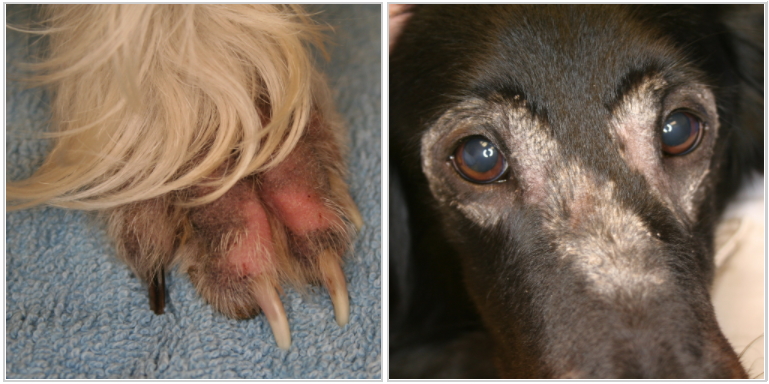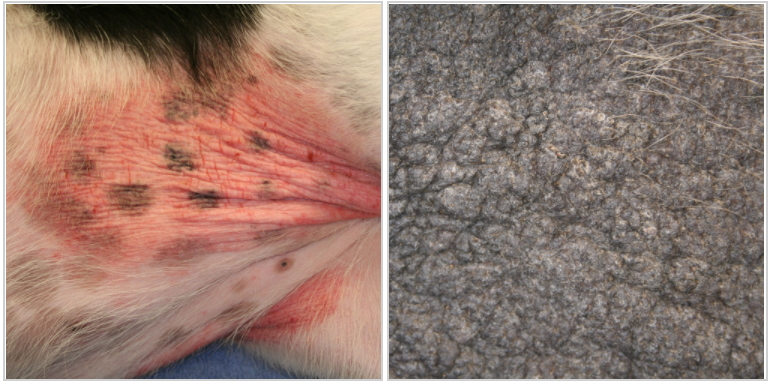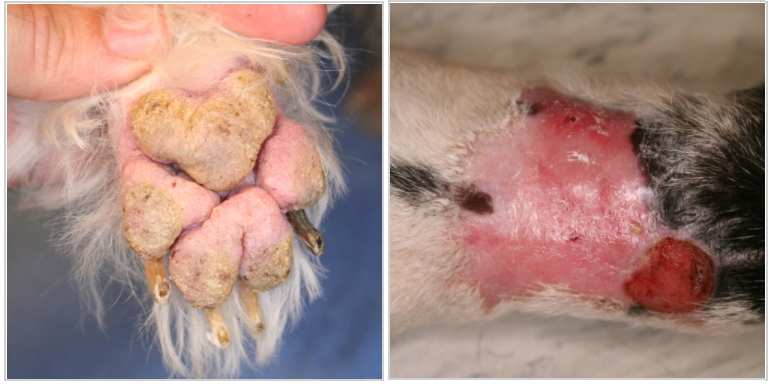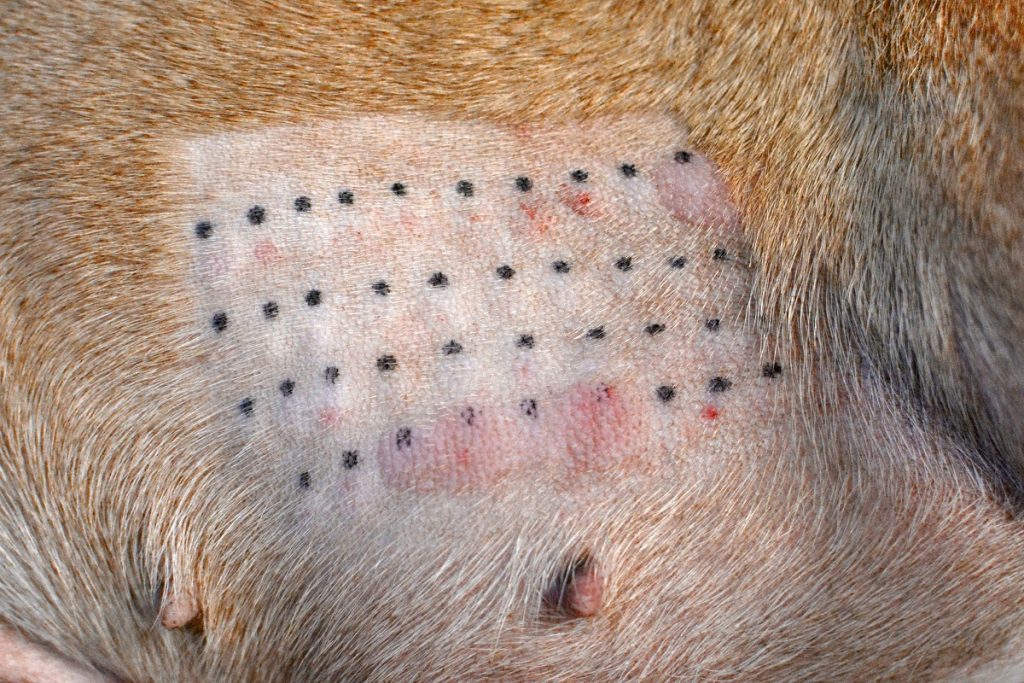Derm Spotlight: Environmental Allergies
How Do You Know If Your Pet Has One?

Is your pet itchy? Does your pets’ skin look red and inflamed? Are they malodorous? If so, these may be signs that your pet has atopic dermatitis or environmental allergies. Atopic dermatitis is a skin sensitivity to common allergens found in our everyday environment including pollens (grasses, weeds, trees), molds, or dust mites found in the house. There are many factors that lead to atopic dermatitis, two main ones being genetics and the environmental that your pet grew up in.
The most common symptoms of atopic dermatitis include skin itch and redness. Most common areas affected are the face, ears, feet, and belly. Symptoms can be seasonal or year-round. Bacterial and yeast skin and ear infections are common sequelae of atopic dermatitis, which can lead to malodor and more itch.
Examples of environmental allergies in patients.

Left: Red itchy paws. Right: Itchy face.

Left: Thick (lichenified), red (erythematous) skin on the abdomen of a dog. Right: Thick (lichenified), dark (hyperpigmented) elephant like skin on a dog.

Left: Red, swollen itchy paws. Right: A chronic lick sore on the leg of a dog.
The diagnosis of atopic dermatitis can be complicated because symptoms look like other allergies. A dermatologist will rely on your pets’ history and physical exam, response to medications, and ruling out other allergies first (flea and food allergy) to diagnose atopic dermatitis. Once it is diagnosed, an intradermal allergy test is often recommended to determine the allergens that is affecting your pet. There are other modes of allergy testing including blood, hair, and saliva; however, these are less or inaccurate.

Skin allergy test on a dog.
Environmental allergies can be managed, but unfortunately there is no cure. The gold standard is immunotherapy (allergy shots/allergy drops), which helps desensitize the immune system and is based off allergy testing. This is often the safest long-term option in managing atopic dermatitis. Other options include antihistamines (e.g. diphenhydramine, cetirizine, etc.), steroids, anti-itch medications like Apoquel and Cytopoint, and an immune modulating medication called Atopica. Your pet may also require more frequent baths and ear cleanings. Many pets with atopic dermatitis need a combination of these therapies.
If you think your pet may have allergies and need further evaluation by one of our dermatologists please contact us.
- Mar, 30, 2022
- Allergy News, Disease Spotlight

